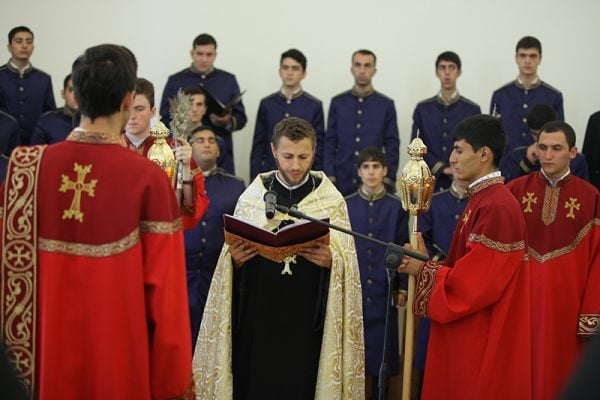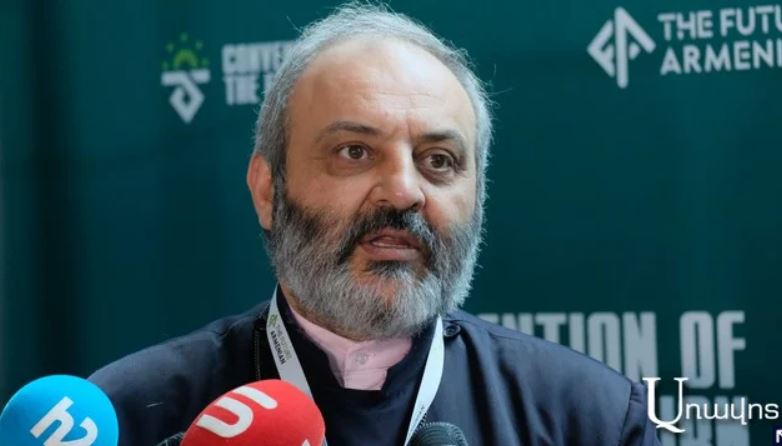Official propaganda wants to convince us that clergymen are the most ignorant and backward part of our society. In its assumptions, it goes as far back as Sahak Partev, Mesrop Mashtoc and Gregory the Illuminator with their “outdated ideas.”
It must be said that “the people,” that is, the mass on which the current authorities rely, find such ideas appealing: “Come on, brother, all those robe-wearers are thieves, robbers, looters, and they’ve always been that way.”
This conviction of the authorities and the Nicolist mass is based, to put it mildly, on a lack of information. At least until the 18th century, in Armenia and in the world, the most developed people were almost exclusively the clergy. Science and culture were concentrated in monasteries, temples, and other spiritual centers. It is not as if Eznik of Koghb, Mkhitar Gosh, or Grigor Tatevatsi were ignorant and backward men. And since the 18th century, the Mekhitarist Congregation has been our greatest scientific and cultural center.
Universities, too, were originally religious institutions. To go further: even today, some of the leading modern universities still have a religious orientation. Such are the Catholic universities of Leuven, Milan, and Rome, as well as the Protestant universities of Heidelberg, Tübingen, and Marburg. In short, all the world’s wisdom is not concentrated in Armenia—in the Civil Contract offices and pro-government NGOs.
Read also
Now imagine representatives of the governments of France, Italy, or Spain saying: “Well, we’re fed up with your Augustine, Bonaventure, and Thomas Aquinas. We’ve got hamburgers, French fries, and Coke—why complicate our lives?” Of course, in far-left youth circles in the West such opinions may indeed be voiced, but there this approach remains marginal. (For now, at least.) In Armenia, however, it has become official, “popular” ideology.
…The same Grigor Tatevatsi once wrote: “It is easier to tame wild beasts than to bring an ignorant man to knowledge.”
Aram Abrahamyan























































